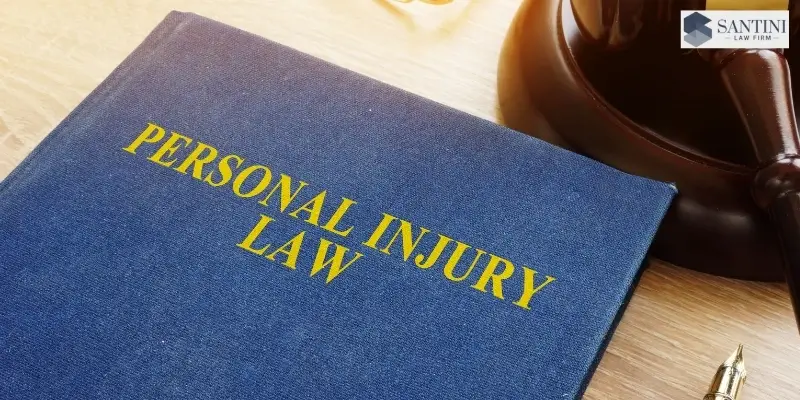Florida Personal Injury Statute of Limitations

Florida law establishes a precise period within which personal injury victims must file legal actions. Failing to meet this deadline results in a permanent loss of your ability to seek compensation, regardless of your case’s strength. The statute of limitations defines a critical legal deadline that determines whether a case can proceed or fail. Knowing the Florida personal injury statute of limitations means understanding the law to safeguard your future.
Florida’s Personal Injury Statute of Limitations
The statute of limitations establishes the legal time limit for initiating court proceedings after a specific event occurs. Within personal injury cases, the statute of limitations establishes the time frame for filing a claim following an injury.
Personal injury cases in Florida must be filed within two years following the injury date, according to the state statute of limitations. The statute of limitations covers all scenarios, including car accidents, slip and fall incidents, and different negligence claims. However, there are a few exceptions:
- Medical Malpractice: The statute of limitations starts when you discovered or should have discovered the injury, but cannot exceed four years of the original malpractice incident.
- Product Liability: The standard period to file a claim is two years after the injury occurs, but different cases may require a different time frame.
- Wrongful Death: The legal deadline to file a wrongful death claim is two years from the decedent’s date of death.
Florida Personal Injury Statistics
According to the Business Observer, Florida is one of the top states in terms of personal injury claims. Between March 2022 and March 2023, there were 28,342 personal injury cases in the state. This consisted of over 60% of all civil court cases. This was over 4 times the national average (11.65%).
When the Statute of Limitations Can Be Extended
Florida law permits the statute of limitations to be put on hold or “tolled” under specific conditions, which allows injured parties additional time to file personal injury claims. Florida Statute § 95.051 (2025) requires individuals to demonstrate their eligibility to the court in order to benefit from extended statute of limitations exceptions.
A typical scenario arises when a defendant takes deliberate steps to avoid service by leaving the state, concealing themselves within Florida, or operating under a false identity. The limitation period stops running until proper service to the defendant is achieved.
Florida statutes provide exceptions for plaintiffs who cannot file a claim within the normal deadline because of legal restrictions. The exceptions apply to people under 18 years of age and individuals who have been legally declared incompetent by a judicial decision. The statute of limitations can be lengthened to permit plaintiffs who otherwise would not have time to file their claims to present them in court.
Where to File Your Personal Injury Claim in Florida
The venue for your personal injury case will either be a county court or circuit court, based on the value of your claim. The state of Florida consists of 67 counties that all have local courts. Your lawyer can determine the proper venue by examining the location of your injury or the residence and business operations of the defendant.
Injuries occurring in Miami require filing at the Eleventh Judicial Circuit Court in Miami-Dade County. Should the incident happen in Tampa, your attorney will likely submit the case to the Thirteenth Judicial Circuit Court located in Hillsborough County. The Ninth Judicial Circuit Court in Orange County serves Central Florida cases, including those from Orlando.
Special Rules if Your Claim Involves Government Entities
Different rules become applicable when your injury involves a state or local government entity, such as an incident occurring on city property or due to a municipal employee. Before proceeding with your claim against a state or local government entity, you must first give written notice.
The required notice for state-level claims should be sent to both the Florida Department of Financial Services and the specific state agency involved. The appropriate city or county must receive a notification about local claims according to its specific procedures.
The timeline is strict. The time limit to submit your notice is three years from your injury date and two years for wrongful death claims. A claim cannot move forward until you meet the pre-suit notice requirement. An attorney who works in governmental tort claims is essential, given the complexity of these cases and potential legal caps on recoverable damages.
FAQs
What Is the New Law in Florida for Personal Injury?
Florida implemented a new law for personal injury, titled House Bill 837, in March 2023 to establish major changes to tort law. The statute of limitations for negligence-based personal injury claims has been reduced from four years to two years while the state transitioned from a pure comparative negligence system to a modified one. The modified system prevents plaintiffs who are more than 50% at fault from receiving any damages.
Can I File a Claim After the Statute of Limitations Has Expired?
Generally, you cannot file a claim after the statute of limitations has expired. The court will probably dismiss your case if you submit your filing after the statutory deadline. Certain exceptions exist, but they remain uncommon and depend on specific facts. You must seek legal advice early and act immediately to protect your case.
What Is the Statute of Limitations on Bodily Injury in Florida?
The statute of limitations on bodily injury in Florida is generally two years from the date the injury occurred or from when you should have discovered the injury. This applies to car accidents, slips, falls, and other injuries caused by negligence. However, there are some situations that may qualify for an exemption.
What Is an Exception to the Statute of Limitations in Florida?
Under Florida law, exemptions to the statute of limitations apply when the injured party is either a minor, mentally incapable, or learns about the injury after a significant delay. The statute may be tolled to pause the countdown when the defendant hides or departs from the state until the situation is resolved.
Contact Santini Personal Injury & Car Accident Law Today
Santini Personal Injury & Car Accident Law offers assistance to those who have suffered injuries and need advice about legal deadlines. Contact us today for a consultation so our skilled team can support you throughout your personal injury case process.
Let Us Get You Started In The
Right Direction
Fields marked with an * are required


